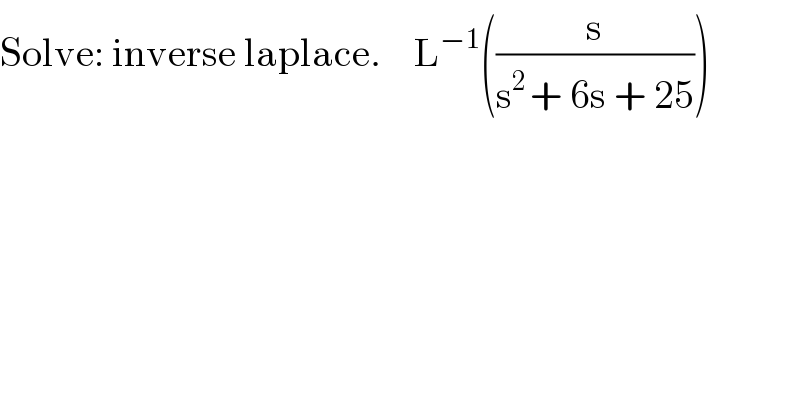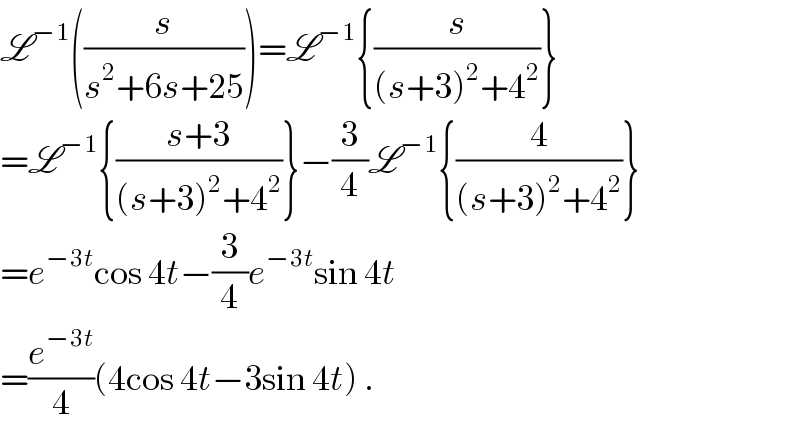
Question Number 20156 by tawa tawa last updated on 22/Aug/17

$$\mathrm{Solve}:\:\mathrm{inverse}\:\mathrm{laplace}.\:\:\:\:\mathrm{L}^{−\mathrm{1}} \left(\frac{\mathrm{s}}{\mathrm{s}^{\mathrm{2}\:} +\:\mathrm{6s}\:+\:\mathrm{25}}\right) \\ $$
Answered by ajfour last updated on 23/Aug/17

$$\mathscr{L}^{−\mathrm{1}} \left(\frac{{s}}{{s}^{\mathrm{2}} +\mathrm{6}{s}+\mathrm{25}}\right)=\mathscr{L}^{−\mathrm{1}} \left\{\frac{{s}}{\left({s}+\mathrm{3}\right)^{\mathrm{2}} +\mathrm{4}^{\mathrm{2}} }\right\} \\ $$$$=\mathscr{L}^{−\mathrm{1}} \left\{\frac{{s}+\mathrm{3}}{\left({s}+\mathrm{3}\right)^{\mathrm{2}} +\mathrm{4}^{\mathrm{2}} }\right\}−\frac{\mathrm{3}}{\mathrm{4}}\mathscr{L}^{−\mathrm{1}} \left\{\frac{\mathrm{4}}{\left({s}+\mathrm{3}\right)^{\mathrm{2}} +\mathrm{4}^{\mathrm{2}} }\right\} \\ $$$$={e}^{−\mathrm{3}{t}} \mathrm{cos}\:\mathrm{4}{t}−\frac{\mathrm{3}}{\mathrm{4}}{e}^{−\mathrm{3}{t}} \mathrm{sin}\:\mathrm{4}{t}\: \\ $$$$=\frac{{e}^{−\mathrm{3}{t}} }{\mathrm{4}}\left(\mathrm{4cos}\:\mathrm{4}{t}−\mathrm{3sin}\:\mathrm{4}{t}\right)\:. \\ $$
